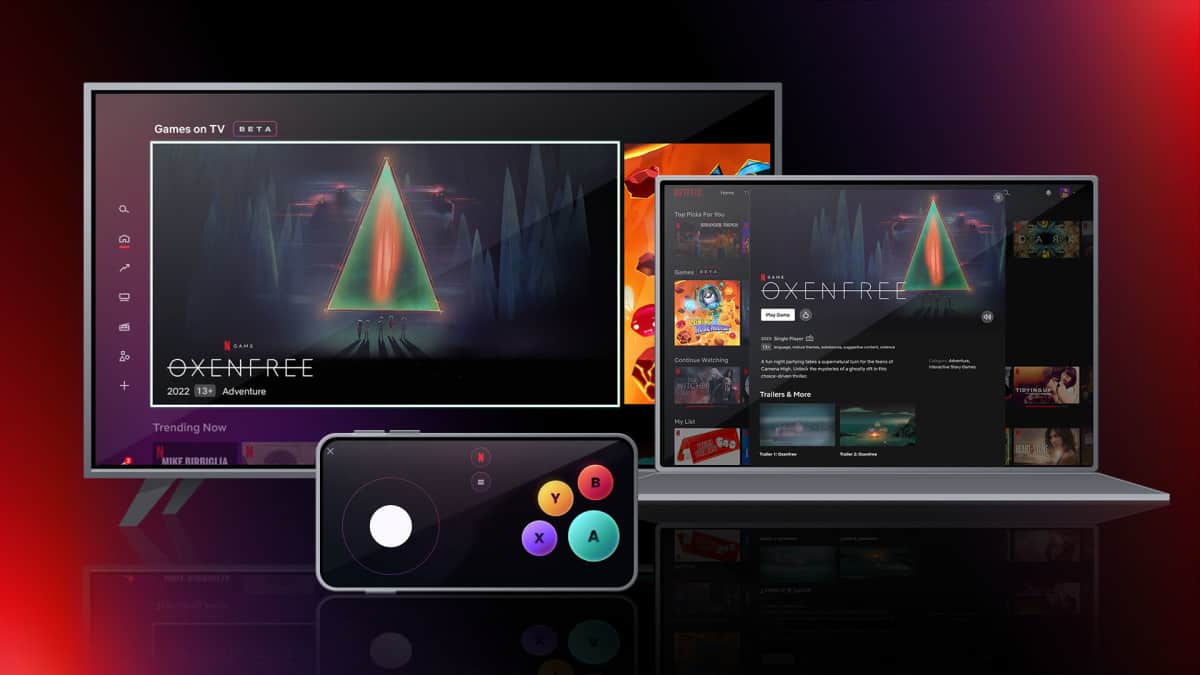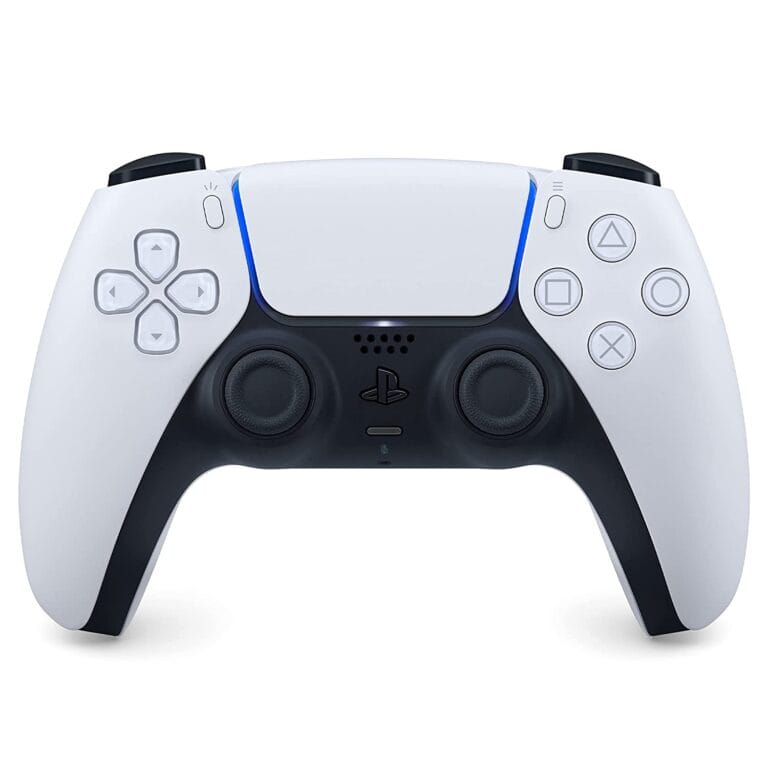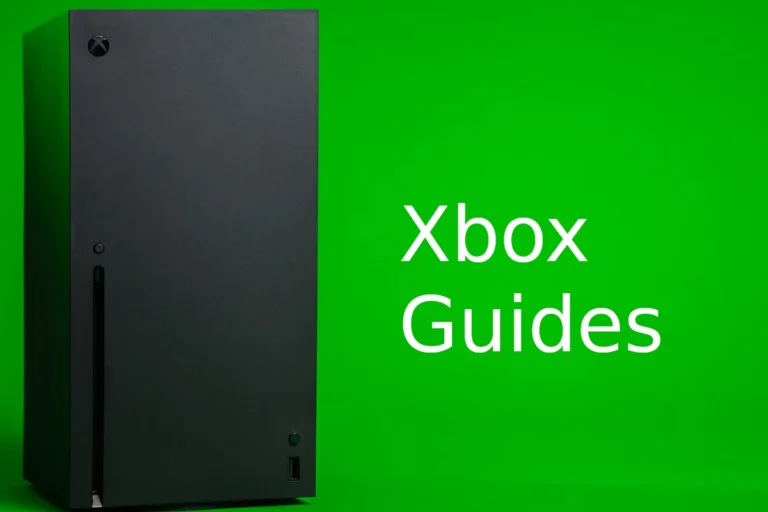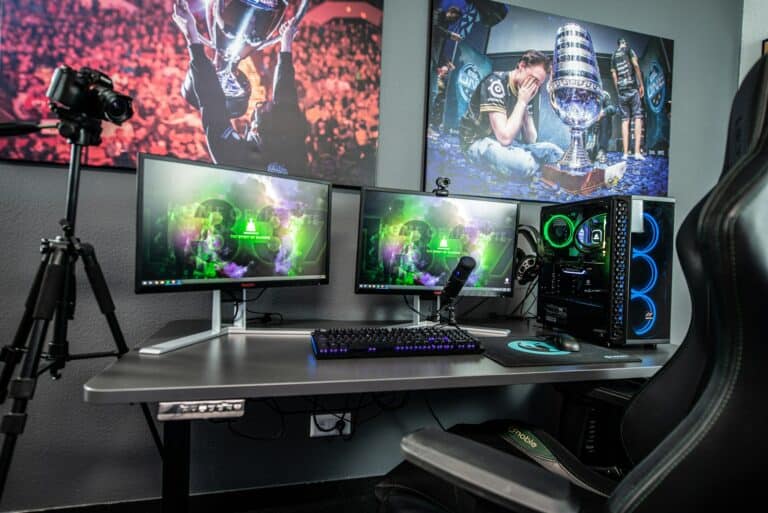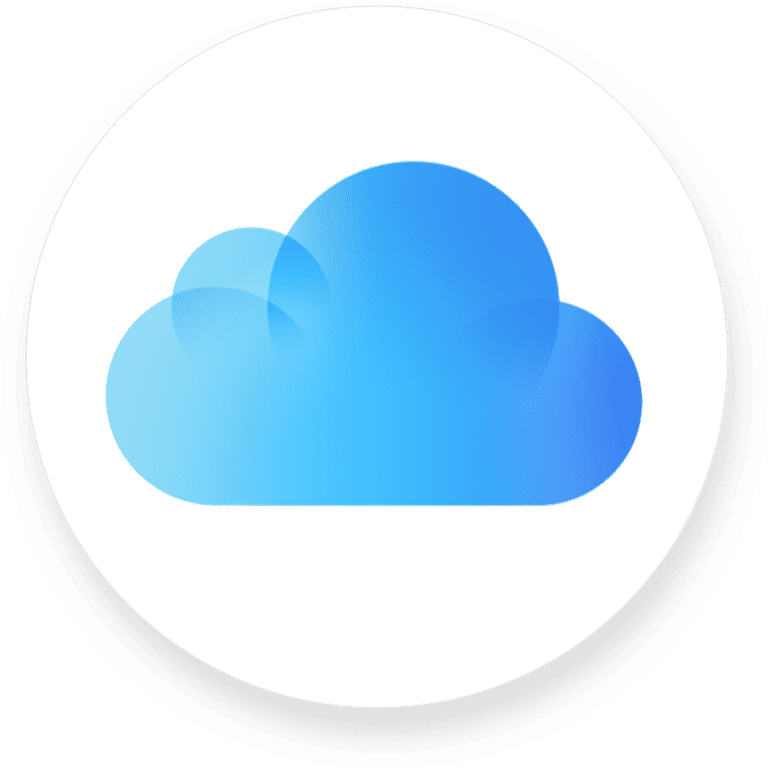In a world where technology is constantly evolving, the gaming industry is no exception. The rise of mobile and cloud gaming has revolutionized how we play, offering exciting new possibilities for both casual and hardcore gamers alike.
For decades, gaming was defined by consoles and PCs. But today, the industry is expanding far beyond those boundaries. Mobile devices and cloud platforms are reshaping how, where, and when we play.
1. Gaming Beyond Consoles: What It Means
“Beyond consoles” refers to gaming experiences that are not tied to a single piece of hardware like a PlayStation, Xbox, or Nintendo system. Instead, players can:
- Play on smartphones and tablets.
- Stream games via cloud platforms.
- Jump seamlessly between devices with cross‑platform play.
2. The Rise of Mobile Gaming
- Accessibility: Nearly everyone has a smartphone, making gaming more inclusive.
- Variety: From casual puzzle games to competitive shooters like PUBG Mobile.
- Monetization: Free‑to‑play with in‑app purchases dominates the market.
- Tech Upgrades: Faster processors, 5G, and better GPUs have made mobile games more immersive.
👉 Mobile now accounts for over half of global gaming revenue (source: GameDoggy).
3. Cloud Gaming: The Next Frontier
Cloud gaming lets you stream games over the internet instead of installing them locally.
- How it works: The game runs on powerful servers, and video is streamed to your device.
- Benefits:
- Play AAA titles on low‑end devices.
- No big downloads or hardware upgrades.
- Seamless play across phone, tablet, laptop, or TV.
- Examples: Xbox Cloud Gaming, Nvidia GeForce NOW, Amazon Luna.
According to TechGig, cloud gaming is democratizing access to high‑quality games by removing hardware barriers.
4. Cross‑Platform Play: Blurring the Lines
Cloud and mobile gaming are tightly linked to cross‑platform play:
- You can start a game on your console, continue on your phone, and finish on your laptop.
- Multiplayer communities are no longer split by device.
- Developers can reach wider audiences, boosting innovation.
This convergence is shaping the future of gaming by uniting players across devices (source: TwoAverageGamers).
5. Challenges Ahead
- Latency: Cloud gaming still depends on fast, stable internet.
- Data costs: Streaming can use up a lot of bandwidth.
- Monetization models: Subscription fatigue is real with so many platforms.
- Device limitations: Mobile games are improving, but still can’t always match console depth.
6. The Future of Gaming Beyond Consoles
- 5G and edge computing will make cloud gaming smoother.
- Hybrid experiences: Games designed for both touchscreens and controllers.
- AR & VR on mobile: Expanding immersive gameplay.
- Global accessibility: More players in developing regions will be able to join in without needing expensive hardware.
✅ Quick Summary
- Mobile gaming → most accessible, fastest‑growing segment.
- Cloud gaming → removes hardware limits, lets you play anywhere.
- Cross‑platform play → unites gamers across devices.
- Future → faster networks, more immersive and inclusive experiences.
The Rise of Alternative Gaming Platforms
Gaming has come a long way since the days of Pong and Pac-Man. While consoles still hold a significant place in the industry, mobile and cloud gaming have emerged as powerful contenders, reshaping how we play and experience games.
Mobile Gaming: Gaming on the Go
Mobile gaming has exploded in popularity thanks to the widespread adoption of smartphones and tablets. These devices offer convenient access to a vast library of games, from casual puzzles to complex RPGs. The mobile gaming market is incredibly diverse, catering to players of all ages and interests.
Key Advantages of Mobile Gaming
- Accessibility: Mobile games can be played anywhere, anytime, making them perfect for on-the-go entertainment.
- Affordability: Many mobile games are free to play, with optional in-app purchases available.
- Social Features: Mobile games often incorporate social features, allowing players to connect with friends and compete against others.
Cloud Gaming: The Future of Gaming?
Cloud gaming is a relatively new technology that streams games directly to a player’s device over the internet. This eliminates the need for expensive hardware, as the game is processed on remote servers. Cloud gaming services offer access to a wide variety of games, including AAA titles that would typically require a high-end PC or console.
Key Advantages of Cloud Gaming
- Hardware Agnostic: Cloud games can be played on a variety of devices, including laptops, smartphones, tablets, and even smart TVs.
- No Downloads or Updates: Games are streamed directly, eliminating the need for lengthy downloads or updates.
- Instant Access: Players can jump into their favorite games instantly, without waiting for downloads or installations.
Mobile vs. Cloud Gaming: A Comparison
| Feature | Mobile Gaming | Cloud Gaming |
|---|---|---|
| Accessibility | High | High |
| Affordability | Generally more affordable | Subscription fees may apply |
| Game Selection | Wide variety of mobile-specific games | Access to AAA titles and console games |
| Hardware Requirements | Requires a smartphone or tablet | Requires a stable internet connection and compatible device |
| Offline Play | Possible with downloaded games | Limited or not available |
The Future of Gaming Beyond Consoles
Mobile and cloud gaming are poised to continue their rapid growth in the coming years. As technology advances, these platforms will offer even more immersive and engaging experiences. While consoles will likely remain popular among hardcore gamers, mobile and cloud gaming will continue to democratize the gaming landscape, making it accessible to a broader audience than ever before.
The Evolution of Gaming
As the gaming industry grows, technology paves the way for new gaming experiences beyond traditional consoles. This shift has led to innovative forms of gaming, including mobile and cloud platforms.
Transition from Consoles to Cloud and Mobile
Console gaming has long been a staple in the world of video games. Yet, recent times have ushered in the cloud and mobile gaming revolution. With the advent of 5G technology, players now enjoy faster speeds and lower latency, making games more accessible on various devices, including smartphones and tablets. Where once consoles were the primary option, cloud gaming services now offer the ability to stream games directly, bypassing the need for expensive hardware.
Impact of Technology on Gaming
Tech advancements have radically altered the way we play and access games. Notably, advancements in mobile device capabilities allow for more sophisticated games to be played on the go. Similarly, cloud gaming leverages powerful remote servers to process and stream games, enabling even hardware-limited devices to run games they would otherwise be incapable of handling. This technological leap forward has expanded the potential player base and changed gaming dynamics significantly.
Growth of the Gaming Industry
The gaming industry has experienced remarkable growth. In recent years, the mobile gaming market has seen a substantial increase, with projections estimating continued expansion. Data suggests that the global market for mobile gaming, having surged from $52.7 billion in 2018 to an estimated $94.8 billion in 2022, is on track to reach approximately $139.5 billion by 2026. The industry’s growth is not just in financial terms but also in the diversity of its audience and the range of available gaming experiences.
Cloud Gaming: The New Frontier
Cloud gaming is reshaping how we experience games, offering play without the need for traditional consoles. It’s a promising direction where games are streamed from powerful servers to you.
Understanding Cloud Gaming
Cloud gaming works by running games on remote servers and streaming them directly to a player’s device. You can play on almost any device with a screen and internet connection. Key aspects include:
- No need for high-end hardware on the user’s end.
- Potentially lower costs and easier access to games.
- Bandwidth is crucial: Smooth gameplay requires a strong, stable internet connection.
Key Players in Cloud Gaming
Several big tech companies are pioneers in cloud gaming. Microsoft with its Project xCloud and Google Stadia are leading the charge by streaming games through the internet. These platforms have made significant strides:
- Microsoft leverages its cloud computing platform, Azure, to power xCloud.
- Google Stadia has built a robust framework for game streaming but faces challenges, like attracting users and developers.
Cloud Computing in Gaming
Cloud computing plays a vital role by offloading computational tasks to powerful servers. This means games can have:
- High-quality graphics and performance without local limitations.
- Improved scalability as the cloud can accommodate many players at once.
- Constraints due to player’s local bandwidth and data caps must be considered.
Mobile Gaming Ecosystem
The mobile gaming ecosystem is a vibrant area where technology meets entertainment. It’s powered by innovations in software and hardware and driven by market trends favoring accessibility and convenience.
Rise of Gaming on Smartphones and Tablets
Smartphones and tablets have become the go-to devices for gamers around the world. Armed with powerful processors and high-resolution screens, these devices offer a gaming experience that was once only possible on consoles. The easy access to millions of games through the Google Play Store for Android users and the App Store for iOS devices has helped mobile gaming’s popularity soar.
- Google Play Store: Over 2.9 million games available
- App Store: Over 1.8 million games available
Mobile Gaming Software and Hardware Enhancement
The advancement of mobile gaming isn’t just about more games. Software enhancements like improved graphics engines make games look stunning, while hardware upgrades make them run smoothly. High-refresh-rate displays and cutting-edge GPUs in the latest smartphones and tablets bring console-quality visuals to the palm of your hand.
- Graphics Engines: Unreal Engine, Unity
- Hardware Innovations: 120Hz displays, custom GPUs
Market Dynamics of Mobile Gaming
Mobile gaming is shaping the entertainment industry with its economic might. It attracts all kinds of gamers, from casual to hardcore, thanks to an extensive variety of games available across different genres. With the ease of downloading and often free-to-start models, mobile games have a unique place in the market.
- User Base: Diverse, global
- Monetization Models: In-app purchases, advertisements, premium games
Consoles in the Modern Era
Consoles have drastically evolved from simple gaming boxes to complex systems that often serve as home entertainment hubs. As they advance, the debate between physical and cloud gaming intensifies, with console giants such as Xbox and PlayStation shaping much of this narrative.
Evolution of Console Gaming
Console gaming has witnessed substantial transformations over the years. The Nintendo Switch revolutionized gaming with its flexibility, allowing play on the go or connected to a TV. Meanwhile, both Xbox One and PS4 have pushed technological boundaries, offering not just gaming, but also multimedia services, reflecting their roles as versatile entertainment systems.
Xbox and PlayStation as Gaming Staples
Xbox and PlayStation have solidified their positions as pillars of the console industry. Microsoft’s Xbox Series X|S and Sony’s PlayStation 5 have continued their legacy, enhancing the user experience with faster load times and sharper visuals. These consoles remain at the core of the gaming community, often dictating the direction of new gaming developments.
Next-Gen Gaming Consoles
The next-gen gaming consoles are raising the bar for gaming immersion. Enhanced by cloud capabilities, gamers can now stream a vast library of games directly, bypassing the need for physical storage. The impact of these advancements is clear: gaming is more accessible and multi-faceted than ever before.
Xbox Game Pass: Changing the Business Model
Xbox Game Pass has revved up Microsoft’s approach to gaming, merging traditional console play with the pioneering realm of cloud technology.
Subscription Services and Gaming Access
Xbox Game Pass and Game Pass Ultimate are subscription services that provide gamers access to a comprehensive library of games. For a monthly fee, users can download and play various titles across Xbox consoles and PC. The Ultimate tier notches up the benefits by bundling the Xbox Game Pass for PC and console with Xbox Cloud Gaming and Xbox Live Gold, offering online play and other perks.
Strategic Partnerships and Acquisitions
Microsoft has strategically acquired key players like Activision, massively expanding its gaming universe and Game Pass offerings. These acquisitions not only bring new games into the fold but also fortify Microsoft’s overall gaming strategy. Bolstering their business model, the company emphasizes cross-platform accessibility, aiming to make every screen a potential venue for Xbox gaming experiences.
Gaming Accessibility and Convenience
The gaming landscape has evolved, becoming more accessible and convenient, allowing players to enjoy games anytime, anywhere, and on virtually any device.
Gaming Across Devices
Gaming is no longer confined to traditional consoles. It now stretches across various devices, from smartphones to dedicated handhelds. The rise of 5G technologies powers devices like Verizon’s 5G handheld, developed with Qualcomm and Razer. These advancements enable seamless play across different platforms. Devices such as the Xbox Wireless Controller, Backbone One, and PowerA Moga Mobile Gaming Clip have emerged, making it easier for gamers to use their smartphones as gaming powerhouses.
Reducing Barriers to Gaming Entry
Accessibility innovations are opening gaming to a broader audience. Cloud gaming platforms negate the need for expensive hardware, cutting down costs and waiting times for downloads. Services like Xbox Game Pass allow users to stream a variety of games directly to their devices. With increased smartphone ownership – which hit 6.3 billion subscriptions globally by the end of 2021 – more people can access games without investing in specific consoles or PCs.
Improving User Interaction
Advancements in accessibility features ensure a more inclusive gaming experience. Customizable controls let players remap buttons and adjust sensitivity, essential for those with mobility impairments. Devices like the Logitech G Cloud enhance user interaction with their ergonomic design and integrated controls, mirroring the console experience. Adjustable game speeds and accessibility options cater to players with different abilities, ensuring everyone can enjoy gameplay to the fullest.
Gaming Performance and Experience
The transition from console to mobile and cloud gaming has ushered in a new age of accessibility and convenience, but it’s the advancements in gaming performance and experience where the true revolution lies. Gamers now enjoy high-quality graphics and smooth gameplay without the need for high-end hardware.
Immersive Gaming Experiences
Immersive gaming experiences have reached new heights, thanks to cloud gaming’s ability to stream high-quality games directly to devices. With 5G’s faster speeds and lower latency, these games now run smoother than ever before. They mirror the detail and depth previously exclusive to console games, allowing for graphic-intensive experiences on the go. The use of augmented reality also adds a layer of depth to mobile games, creating a new level of interaction with the player’s environment.
Peripherals and User Interface
Controllers remain vital for serious gamers, even in mobile and cloud gaming. They contribute to a more traditional gaming feel, positively impacting performance. Manufacturers now offer a range of controllers that can connect to mobile devices, giving gamers the precision they were used to with consoles.
For mobile gaming, the user interface (UI) is specially designed to work with touchscreens. Game developers ensure that buttons and gestures are intuitive, not disrupting the flow of play. Cloud gaming services have also adapted their UIs to work seamlessly across different devices, maintaining a consistent experience whether one is playing on a phone, tablet, or laptop.
Economic and Business Implications
The gaming industry has seen a shift from traditional consoles to digital realms that influence how companies make money and craft their strategies. Let’s explore these economic factors and how gaming businesses adapt.
Revenue Streams in Gaming
Global Gaming Growth: The financial health of the gaming industry has been robust. In recent years, gaming has seen significant growth, with 2020 revenues hitting $198 billion. The rise of mobile gaming is a standout, as it pulled in around $77 billion in 2020 revenue.
Diversification: Companies have diversified their income sources. Beyond game sales, revenue streams include downloadable content (DLC), subscriptions, in-game purchases, and advertising. The Xbox software and services, for instance, contribute substantially to the overall gaming division revenue.
Gaming and Corporate Strategy
Responding to Shifts: Adapting to a dynamic market is key. Gaming firms must stay agile as trends change. This has included focusing more on mobile platforms where the user base has hugely expanded, with billions embracing gaming on-the-go.
Innovation in Business Models: The way companies earn from gaming is constantly evolving. New business models have emerged, such as free-to-play titles with in-game monetization. This is a break from traditional console and game sales and requires companies to constantly innovate to stay ahead.
Frequently Asked Questions
This section addresses common inquiries about gaming outside the conventional living room setup.
What are the main differences between various cloud gaming services?
Each cloud gaming service, like GeForce Now, Google Stadia, or Xbox Cloud Gaming, offers a unique library of games, pricing models, and compatibility with different devices. They also vary in terms of streaming quality and latency.
How does cloud gaming performance compare with traditional console gaming?
Cloud gaming can provide high-quality gaming experiences, often similar to those on consoles, but it depends heavily on internet speed and stability. Consoles might offer more consistent performance without the need for a strong internet connection.
Is cross-platform play possible with cloud gaming services?
Yes, many cloud gaming services allow for cross-platform play, enabling gamers to join multiplayer games with others regardless of the device they’re using. This feature is becoming increasingly common.
Can you effectively use cloud gaming on mobile devices?
With advancements in technology, especially with the rollout of 5G networks, cloud gaming on mobile devices has become more efficient, offering smoother gameplay and lower latency.
What are the advantages and disadvantages of gaming without a traditional console?
Gaming without a console allows for flexibility and mobility; games can be played across several devices. However, it can be limited by internet connectivity and may involve subscription fees or fewer ownership rights compared to buying physical game copies.
Which cloud gaming service is considered the best in terms of features and overall performance?
The standing out cloud gaming service in terms of overall features and performance often shifts as technology and services improve. Players typically look at game selection, streaming quality, and cost when determining the best service for their needs.

